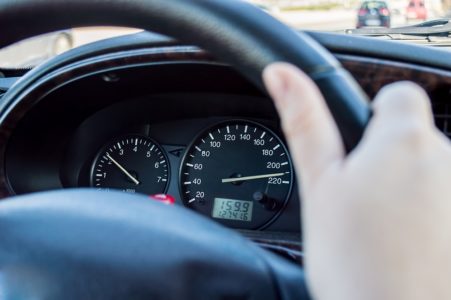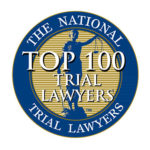Reckless driving is a serious offense that often leads to serious accidents. Drivers must remain responsible and aware while on the road, as any negligence or malicious aggression could cause harm to themselves and others.
After an accident resulting from reckless driving of any kind, victims may be able to recover compensation from liable drivers. Several types of reckless driving can cause a variety of car accidents leading to serious injuries and fatalities.
What Exactly Is Reckless Driving?

Reckless driving is a type of traffic violation that entails the disregard for traffic laws and other people’s safety.
Reckless driving is a frequent cause of many driving accidents, with AAA finding that around eight in every ten drivers have demonstrated aggressive behaviors while driving.
Reckless driving comes in several forms, with the following being some of the most common:
Speeding
Speeding is the most common type of reckless driving offense in the U.S. According to data from the National Highway Traffic Safety Administration (NHTSA), one recent year saw over 11,000 die in speeding-related accidents, and it continues to be a serious issue on the road.
Speeding often occurs when people are in a rush or otherwise lose their patience while driving. Drivers may believe that they can still safely handle their vehicles at speeds exceeding posted speed limits, but they put others at risk of high-impact accidents that can be highly injurious or fatal. Drivers can also easily lose control of their vehicles and spin out or rollover. If an obstacle appears in the road, speeding drivers will also be unable to react in time in many instances, causing them to hit the object or swerve and subsequently lose control.
Distracted Driving
Another frequent reckless driving offense is distracted driving, with different kinds of distractions potentially redirecting drivers’ attention.
Some potential distractions that could hold drivers’ attention and contribute to an accident may include:
- Talking on the phone while driving
- Texting while driving
- Looking at billboards or other distractions on the side of the road
- Eating or drinking while driving
- Adjusting dials and other items on the dashboard
- Speaking with or looking at other passengers in the vehicle
If a driver encounters these or other distractions on the road, he or she may not have enough time to avoid other vehicles or obstacles on the road and crash into other vehicles or property.
Impaired Driving
Driving under the influence of alcohol and other substances remains one of the leading causes of vehicle accidents. There are many risks associated with impaired driving, including impaired judgment and slower reaction times that can lead to other forms of reckless driving, including speeding and distracted driving.
The penalties for driving under the influence are serious in every state and attempt to deter drivers from engaging in this behavior.
Abrupt Maneuvers
Drivers may attempt to maneuver through traffic in numerous ways, often when they’re stuck in traffic and want to get to their destination faster. In doing so, they may make sudden moves that put themselves and other drivers and pedestrians at risk.
Some specific examples of abrupt maneuvers include weaving in and out of lanes, failing to signal a turn or lane change to other drivers, making quick and unanticipated lane changes, or braking without warning.
Racing
Some drivers may want to show off their driving abilities and get competitive with others on the road through street racing. While some drivers may choose to race others in isolated streets or other areas where other vehicles aren’t located, others may choose to race other drivers while on a busy road. Regardless of the location of the race, drivers can easily lose control in these situations and crash their vehicles. The result may be serious or fatal injuries along with potentially significant property damage.
Improper Passing
Areas with no passing lanes are often more dangerous for passing vehicles, which is why passing isn’t allowed in these locations. Drivers who pass in a no-passing zone increase the risk of accidents, injuries, and damage. For example, a driver in one lane may pass in a no-passing zone at a tight turn on the road next to a cliff. In the process, the driver may hit another vehicle closest to the cliff, forcing it off the road and the cliff.
Tailgating
Some drivers may follow too closely behind other vehicles, either because they want to pressure the front vehicle to move faster or simply out of inattention. In any case, tailgating can lead to serious accidents if the vehicle in front needs to slow down or stop for any reason, as the rear driver won’t have enough time to react. This type of reckless driving is a leading cause of rear-end accidents.
Neglecting to Stop for School Buses
Whenever school buses come to a stop at a designated bus stop, other drivers must yield to them until they drop off passengers and begin moving again. School buses typically extend retractable stop signs to indicate when vehicles in oncoming lanes should stop. A driver failing to stop for a school bus puts young schoolchildren and others at risk of an accident.
What Are the Penalties for Reckless Driving?
The penalties for reckless driving in the U.S. vary from state to state. There are different types of reckless driving that come with different penalties, but the penalties for reckless driving are generally serious.
Reckless Driving Involving Misdemeanors
In most cases, reckless driving is a misdemeanor criminal offense, meaning that it has a penalty of around $50 to $1,000 in fines and a jail sentence of up to 90 days.
For example, New York has the following penalties for speeding:
- Up to 10 miles per hour over the speed limit: $5 to $150 fines and up to 15 days in prison
- More than ten miles per hour over the limit but under 30: $90 to $300 fines and up to 30 days in prison
- More than 30 miles per hour over the limit: $180 to $600 fines and up to 30 days in prison
- Inappropriate speed: $45 to $150 fines and up to 15 days in prison
Additionally, states may suspend the licenses of drivers who commit a misdemeanor reckless driving offense.
Reckless Driving Involving Felony Offenses
If injuries, deaths, or property damage occurs because of reckless driving, this may turn the offense from a misdemeanor into a felony. The penalties for a felony reckless driving offense are considerably more severe, with offenders facing over $1,000 in fines along with a prison sentence of a year or longer.
What Should You Do After a Reckless Driving Accident?
Following an accident, there are certain steps you should take if you believe that another driver’s reckless behavior caused it. By taking these steps, you may be able to build a successful case against one or more reckless drivers and recover compensation for injuries and other damages.
Immediately after an accident:
Seek Medical Attention
The first step is to seek medical attention. If your injuries are serious enough, you may need an ambulance at the scene of the accident to transport you to a hospital. However, even if you believe your injuries are minor and don’t require treatment, you should seek a medical professional’s assessment.
The sooner you see a doctor after an accident, the sooner you can generate medical records that prove your injuries and begin treatment. These records may help show that a reckless driver caused your injuries in a claim or lawsuit.
Obtain a Police Report
If any injuries or serious damage occur because of an accident, the people involved should contact the authorities. The police will arrive at the scene and put together a police report, which will detail the events of the accident and could include witness information.
A thorough report could also detail any potential violations, including reckless driving. This document could further support your case when seeking compensation from reckless drivers and insurers.
Collect as Much Evidence as Possible
To build a successful claim or lawsuit, you will need plenty of evidence that supports your case.
You may want to collect evidence for your case, including:
- Medical bills and receipts for treatment
- Communications with insurance companies
- Vehicle repair bills
- Witness statements
- Photos and video footage of injuries, property damage, and the scene of the accident
- Police reports proving reckless driving occurred
With so many types of potential evidence out there, you may struggle to obtain and organize all of it, but a car accident attorney may be able to assist with this. An experienced lawyer would be able to reach out to anyone who can provide helpful documentation and effectively organize it to support a case.
Avoid Social Media
Avoid posting on social media during the recovery process and when filing a claim or lawsuit. Even if your injuries are serious and you remain honest on social media, the wrong post could compromise your case. Insurance companies will investigate claims and could access social media profiles for evidence showing that your injuries aren’t serious.
For example, despite suffering an allegedly debilitating injury, pictures in social media posts could show the claimant partying and enjoying a night out, which could contradict the claimant’s statements to insurers.
Speak With an Attorney to Discuss Your Case
If your accident is minor and doesn’t involve large sums of money or extensive damages, you may be able to negotiate with insurers on your own and recover compensation. However, you may struggle to get the compensation you deserve if a reckless driver caused serious injuries and costly damages resulting in a potentially large settlement amount.
Insurance companies don’t want to pay large sums of money to claimants if they can avoid it. Adjusters may appear friendly and helpful during the claims process, but they’re working in favor of the insurer. They’ll look for any valid reason to reduce your settlement amount or deny your claim. Some insurers may also act in bad faith, making lowball offers and engaging in other practices that could hurt your case.
To avoid potential issues in a complex case involving potentially large settlements, you’re better off consulting with a car accident lawyer with experience handling reckless driving cases. An attorney can review the facts of your case and determine what options are available to you. If the attorney decides to handle your case, he or she may also be able to negotiate with insurers to get a fair settlement amount.
Don’t Wait to File a Claim
You must also avoid waiting too long to file a claim or lawsuit against a reckless driver and insurers. Every state has a statute of limitations that gives accident victims a limited amount of time to file after an accident occurs. In New York, for instance, drivers have three years to file a claim from the date of the accident. This statute may seem like a long time, but those years can quickly pass by, and failure to file before the statute of limitations passes can prevent you from getting compensation.
Do not wait. Act fast and get started with your case as soon as possible to maximize your chances of success.
Contact a Reputable Car Accident Lawyer Today
Reckless driving frequently leads to serious accidents involving a lot of damage, but victims have options available to recover compensation. Speak with an experienced attorney to discuss a potential case and review the details of your claim.
If you believe a reckless driver has caused injuries or wrongful death, consult an attorney to discuss the facts of your case and determine what steps you should take next.

